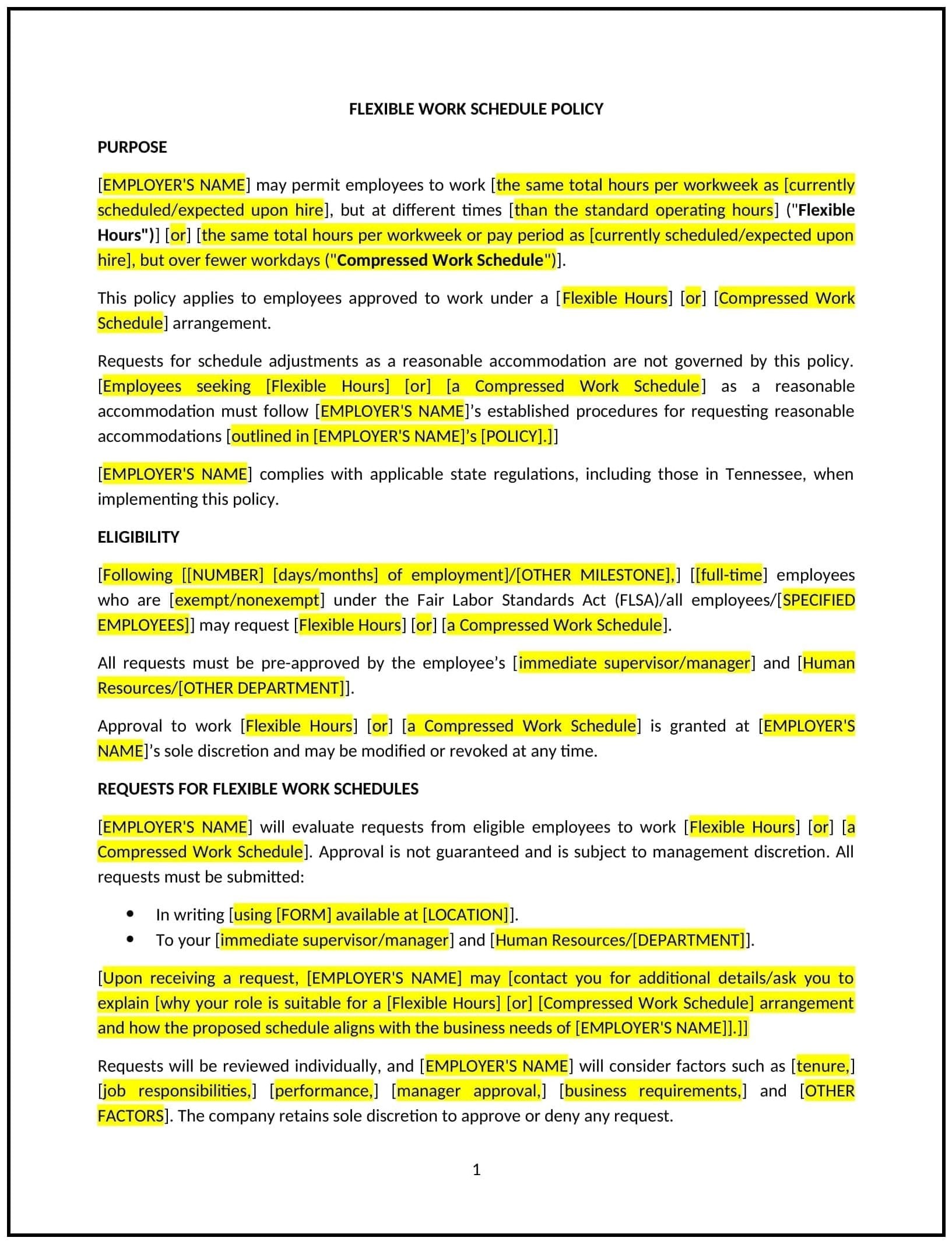Flexible work schedule policy (Tennessee): Free template
Got contracts to review? While you're here for policies, let Cobrief make contract review effortless—start your free review now.

Customize this template for free
Flexible work schedule policy (Tennessee)
This flexible work schedule policy is designed to help Tennessee businesses establish guidelines for employees requesting alternative work arrangements, such as remote work, compressed workweeks, or flexible hours. It outlines procedures for requesting, approving, and managing flexible schedules.
By adopting this policy, businesses can support work-life balance, enhance employee satisfaction, and improve productivity.
How to use this flexible work schedule policy (Tennessee)
- Define flexible options: Specify the types of flexible schedules available, such as remote work, flextime, or compressed workweeks.
- Set eligibility criteria: Outline requirements for employees to qualify for flexible schedules, such as job role or performance level.
- Establish request procedures: Provide steps for employees to request flexible schedules, including required documentation and approvals.
- Address performance expectations: Explain how productivity and performance will be measured for employees on flexible schedules.
- Train managers: Educate supervisors on managing flexible schedules and maintaining workflow.
- Review and update: Assess the policy annually to ensure it aligns with evolving business needs and employee expectations.
Benefits of using this flexible work schedule policy (Tennessee)
This policy offers several advantages for Tennessee businesses:
- Supports work-life balance: Helps employees manage personal and professional responsibilities effectively.
- Enhances employee satisfaction: Demonstrates a commitment to accommodating employee needs.
- Improves productivity: Allows employees to work during their most productive hours.
- Reduces turnover: Builds loyalty by offering flexibility and support.
- Aligns with modern work trends: Keeps businesses competitive by embracing flexible work practices.
Tips for using this flexible work schedule policy (Tennessee)
- Communicate the policy: Share the policy with employees and include it in the employee handbook.
- Provide training: Educate managers on managing flexible schedules and maintaining workflow.
- Monitor compliance: Regularly review flexible schedule requests and performance outcomes.
- Address issues promptly: Take corrective action if flexible schedules are misused or disrupt operations.
- Update regularly: Assess the policy annually to ensure it aligns with evolving business needs.